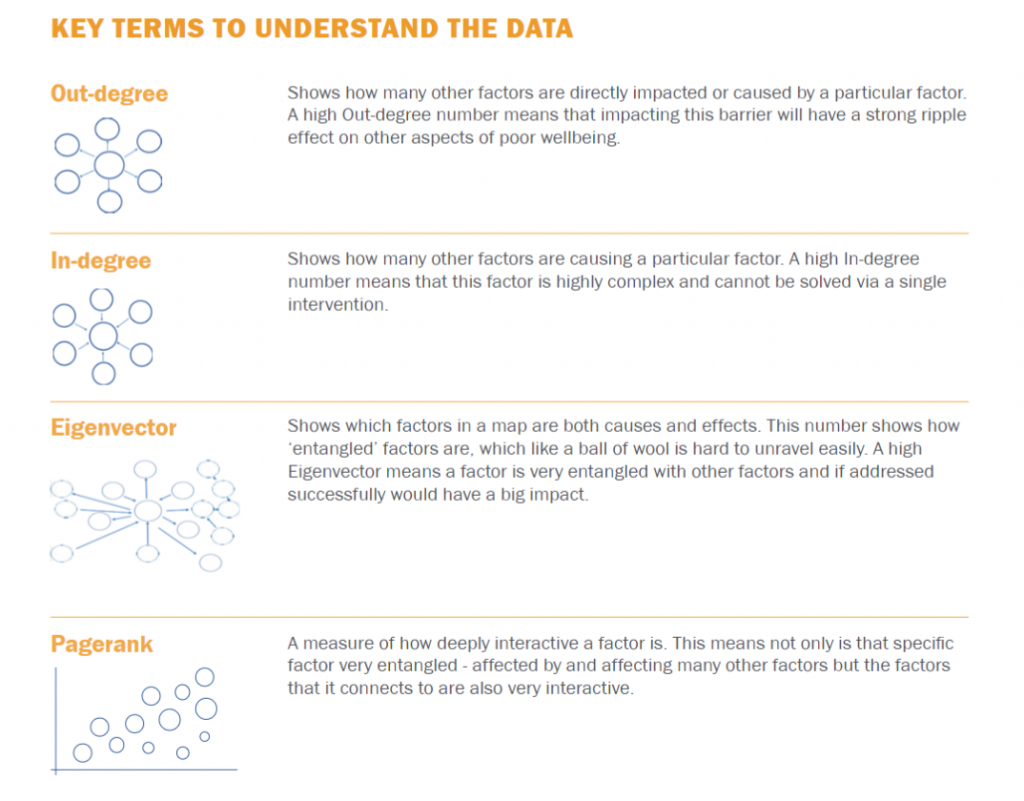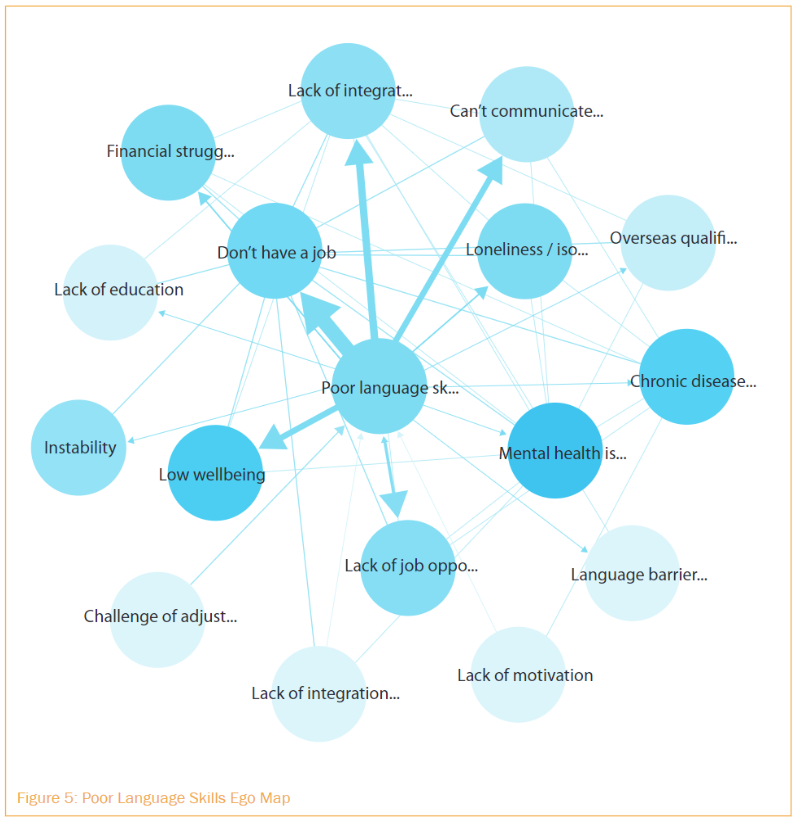Through the Culture Well project, Asthma Australia and partners are empowering communities and stakeholders to implement a collaborative, social determinants approach to promoting wellbeing and reducing chronic disease, including asthma.
CULTURE WELL: A SHIFT IN APPROACH
Chronic disease is experienced by people as a complex problem combined of medical and social issues. However, life factors are much more important in determining health outcomes. Literature shows culturally and linguistically diverse (CALD) communities where poor health outcomes are often related to issues such as different cultural beliefs about health, not being accepted into society, language skills and feelings of discrimination. To address chronic conditions effectively, the connections between lifestyle factors, social issues, culture, health and wellbeing need to be understood. The Culture Well project (CW) is based on an understanding that health and wellbeing is made up of many different, inter-connecting factors, that can be thought of as a system of a person’s life and health. A new form of systems mapping was used to ‘map the systems’ of health and wellbeing for three CALD groups – Arabic speaking, Vietnamese and Samoan – in South Brisbane. These maps were used to identify the major barriers and enablers to health and wellbeing.
WHAT IS SYSTEMS EFFECTS?
Systems Effects is a new form of systems mapping, developed by Dr Luke Craven (UNSW), that allows us to explore the complex nature of health and how it interconnects with other areas of life. The Systems Effects maps show the specific determinants or causes of health for each individual and the connections between factors that are specific to them. The individual maps can be layered on top of each other, so that community-level trends can be seen clearly without losing the individual differences. It is useful in identifying the most effective points for systems-level change because it can identify those points which will have the most impact on the highest number of factors.
WHAT IS WELLBEING FOR THE ARABIC COMMUNITY?
Wellbeing Wheels developed by the communities enabled them to define wellbeing in their terms, identifying as a group, 6-10 aspects of wellbeing for their culture. All of the factors need to be present for an individual and community to be thriving. This report focuses on the Arabic speaking community, which has a high percentage of refugees and recent arrivals.
OUR KEY FINDINGS: TOP 5 FACTORS UNDERMINING HEALTH AND WELLBEING IN THE ARABIC SPEAKING COMMUNITY IN BRISBANE


1) POOR LANGUAGE SKILLS
Highest Out-Degree – 14
Low In-Degree – 4
Fourth-Highest Eigenvector – 17
Pagerank – 8
Poor language skills contribute to many barriers in relation to poor health, having the highest out-degree. This means it is a causative factor of many other problems. Having a low in-degree measure means that there are few factors contributing to poor language skills, so finding a suitable solution should be more straight-forward than other issues. It is very entangled (eigenvector) and connects with many other factors, which means that it is both a cause and an effect. This is a key leverage point in the wellbeing system of this community and if successfully addressed there will be strong ripple effect throughout the system.


2) UNEMPLOYMENT
Highest Out-Degree – 10
Low In-Degree – 9
Fourth-Highest Eigenvector – 19
Pagerank – 4
With a medium level in-degree, unemployment is caused by 9 other factors, meaning it is a moderately complex issue. However, it impacts on 10 others factors (3rd highest out-degree), so has a significant flow-on effect. It is also highly entangled and connects with many other points, so it may not be easy to determine exactly what might be the most effective strategy to address it. However, the high pagerank means it would have a major ripple effect in creating systems change if addressed successfully.
3) MENTAL HEALTH ISSUES
Highest Out-Degree – 6
Low In-Degree – 25
Fourth-Highest Eigenvector – 31
Pagerank – 1
Mental Health issues are commonly experienced as a cause of only 6 other problems (out-degree). However, it is the most entangled factor on the map and so is central to the experience of poor wellbeing for this community, being both a cause and an effect and connected to many other factors that are also highly entangled. A high pagerank means it will impact many factors if addressed, but with the highest in-degree, there are many contributing factors to poor mental health, which means it may not be easy to solve and may need a multi-strategy approach. Because mental health is so important and impacts on so many factors, any health and wellbeing intervention for this community needs to take mental health issues into account. This was connected by individuals 24 times to other nodes.
4) POOR PHYSICAL HEALTH & CHRONIC DISEASE
Highest Out-Degree – 13
Low In-Degree – 10
Fourth-Highest Eigenvector – 29
Pagerank – 2
The community notably spoke about their poor physical health in general terms and very rarely mentioned a specific condition. As the factor with the second-highest out-degree, poor physical health impacts widely upon other elements of a person’s life. It is also highly entangled, and these two elements together indicate that it is an important part of the experience of wellbeing, however its higher in-degree than most other factors indicates that it is relatively complex to address. Finding out exactly which causes to address and how to be most effective is NOT simple. However, if it were successfully addressed there would be a high ripple effect.


5) LACK OF INTEGRATION WITH SOCIETY
Highest Out-Degree – 7
Low In-Degree – 8
Fourth-Highest Eigenvector – 15
Pagerank – 5
This factor has lower values than the others listed here, and at first glance may seem less important than many other factors in the maps. It is a contributing factor to a moderate number of other problems. Both the in-degree and the eigenvector are moderate which means it is only moderately complex as an issue. However, it is listed here because the pagerank is very high which means that if we can create change in this factor, it will have a large ripple-effect and create more systems change than many other factors. Secondly, lack of integration with society ONLY appeared on the Arabic speaking community’s maps. In the other communities we worked with – Vietnamese and Samoan – this factor was entirely absent. Being a unique factor to this community means it is less likely to be a deeply entrenched issue in the service-provider, governmental or cultural landscape, and has potential to be a useful leverage point.
Click here to download the full report






